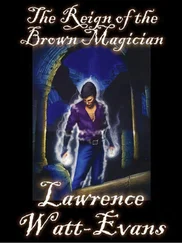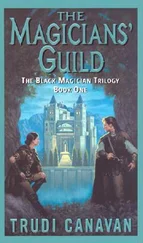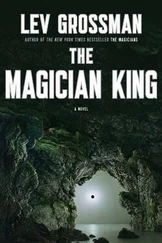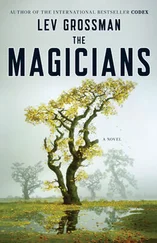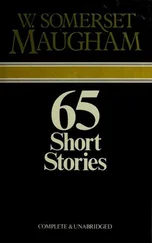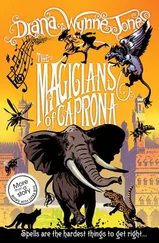Somerset Maugham - The Magician
Здесь есть возможность читать онлайн «Somerset Maugham - The Magician» весь текст электронной книги совершенно бесплатно (целиком полную версию без сокращений). В некоторых случаях можно слушать аудио, скачать через торрент в формате fb2 и присутствует краткое содержание. Жанр: Классическая проза, на английском языке. Описание произведения, (предисловие) а так же отзывы посетителей доступны на портале библиотеки ЛибКат.
- Название:The Magician
- Автор:
- Жанр:
- Год:неизвестен
- ISBN:нет данных
- Рейтинг книги:3 / 5. Голосов: 1
-
Избранное:Добавить в избранное
- Отзывы:
-
Ваша оценка:
- 60
- 1
- 2
- 3
- 4
- 5
The Magician: краткое содержание, описание и аннотация
Предлагаем к чтению аннотацию, описание, краткое содержание или предисловие (зависит от того, что написал сам автор книги «The Magician»). Если вы не нашли необходимую информацию о книге — напишите в комментариях, мы постараемся отыскать её.
The Magician — читать онлайн бесплатно полную книгу (весь текст) целиком
Ниже представлен текст книги, разбитый по страницам. Система сохранения места последней прочитанной страницы, позволяет с удобством читать онлайн бесплатно книгу «The Magician», без необходимости каждый раз заново искать на чём Вы остановились. Поставьте закладку, и сможете в любой момент перейти на страницу, на которой закончили чтение.
Интервал:
Закладка:
6
Two days later, Arthur received Frank Hurrell's answer to his letter. It was characteristic of Frank that he should take such pains to reply at length to the inquiry, and it was clear that he had lost none of his old interest in odd personalities. He analysed Oliver Haddo's character with the patience of a scientific man studying a new species in which he is passionately concerned.
My dear Burdon:
It is singular that you should write just now to ask what I know of Oliver Haddo, since by chance I met the other night at dinner at Queen Anne's Gate a man who had much to tell me of him. I am curious to know why he excites your interest, for I am sure his peculiarities make him repugnant to a person of your robust common sense. I can with difficulty imagine two men less capable of getting on together. Though I have not seen Haddo now for years, I can tell you, in one way and another, a good deal about him. He erred when he described me as his intimate friend. It is true that at one time I saw much of him, but I never ceased cordially to dislike him. He came up to Oxford from Eton with a reputation for athletics and eccentricity. But you know that there is nothing that arouses the ill-will of boys more than the latter, and he achieved an unpopularity which was remarkable. It turned out that he played football admirably, and except for his rather scornful indolence he might easily have got his blue. He sneered at the popular enthusiasm for games, and was used to say that cricket was all very well for boys but not fit for the pastime of men. (He was then eighteen!) He talked grandiloquently of big-game shooting and of mountain climbing as sports which demanded courage and self-reliance. He seemed, indeed, to like football, but he played it with a brutal savagery which the other persons concerned naturally resented. It became current opinion in other pursuits that he did not play the game. He did nothing that was manifestly unfair, but was capable of taking advantages which most people would have thought mean; and he made defeat more hard to bear because he exulted over the vanquished with the coarse banter that youths find so difficult to endure.
What you would hardly believe is that, when he first came up, he was a person of great physical attractions. He is now grown fat, but in those days was extremely handsome. He reminded one of those colossal statues of Apollo in which the god is represented with a feminine roundness and delicacy. He was very tall and had a magnificent figure. It was so well-formed for his age that one might have foretold his precious corpulence. He held himself with a dashing erectness. Many called it an insolent swagger. His features were regular and fine. He had a great quantity of curling hair, which was worn long, with a sort of poetic grace: I am told that now he is very bald; and I can imagine that this must be a great blow to him, for he was always exceedingly vain. I remember a peculiarity of his eyes, which could scarcely have been natural, but how it was acquired I do not know. The eyes of most people converge upon the object at which they look, but his remained parallel. It gave them a singular expression, as though he were scrutinising the inmost thought of the person with whom he talked. He was notorious also for the extravagance of his costume, but, unlike the aesthetes of that day, who clothed themselves with artistic carelessness, he had a taste for outrageous colours. Sometimes, by a queer freak, he dressed himself at unseasonable moments with excessive formality. He is the only undergraduate I have ever seen walk down the High in a tall hat and a closely-buttoned frock-coat.
I have told you he was very unpopular, but it was not an unpopularity of the sort which ignores a man and leaves him chiefly to his own society. Haddo knew everybody and was to be found in the most unlikely places. Though people disliked him, they showed a curious pleasure in his company, and he was probably entertained more than any man in Oxford. I never saw him but he was surrounded by a little crowd, who abused him behind his back, but could not resist his fascination.
I often tried to analyse this, for I felt it as much as anyone, and though I honestly could not bear him, I could never resist going to see him whenever opportunity arose. I suppose he offered the charm of the unexpected to that mass of undergraduates who, for all their matter-of-fact breeziness, are curiously alive to the romantic. It was impossible to tell what he would do or say next, and you were kept perpetually on the alert. He was certainly not witty, but he had a coarse humour which excited the rather gross sense of the ludicrous possessed by the young. He had a gift for caricature which was really diverting, and an imperturbable assurance. He had also an ingenious talent for profanity, and his inventiveness in this particular was a power among youths whose imaginations stopped at the commoner sorts of bad language. I have heard him preach a sermon of the most blasphemous sort in the very accents of the late Dean of Christ Church, which outraged and at the same time irresistibly amused everyone who heard it. He had a more varied knowledge than the greater part of undergraduates, and, having at the same time a retentive memory and considerable quickness, he was able to assume an attitude of omniscience which was as impressive as it was irritating. I have never heard him confess that he had not read a book. Often, when I tried to catch him, he confounded me by quoting the identical words of a passage in some work which I could have sworn he had never set eyes on. I daresay it was due only to some juggling, like the conjuror's sleight of hand that apparently lets you choose a card, but in fact forces one on you; and he brought the conversation round cleverly to a point when it was obvious I should mention a definite book. He talked very well, with an entertaining flow of rather pompous language which made the amusing things he said particularly funny. His passion for euphuism contrasted strikingly with the simple speech of those with whom he consorted. It certainly added authority to what he said. He was proud of his family and never hesitated to tell the curious of his distinguished descent. Unless he has much altered, you will already have heard of his relationship with various noble houses. He is, in fact, nearly connected with persons of importance, and his ancestry is no less distinguished than he asserts. His father is dead, and he owns a place in Staffordshire which is almost historic. I have seen photographs of it, and it is certainly very fine. His forebears have been noted in the history of England since the days of the courtier who accompanied Anne of Denmark to Scotland, and, if he is proud of his stock, it is not without cause. So he passed his time at Oxford, cordially disliked, at the same time respected and mistrusted; he had the reputation of a liar and a rogue, but it could not be denied that he had considerable influence over others. He amused, angered, irritated, and interested everyone with whom he came in contact. There was always something mysterious about him, and he loved to wrap himself in a romantic impenetrability. Though he knew so many people, no one knew him, and to the end he remained a stranger in our midst. A legend grew up around him, which he fostered sedulously, and it was reported that he had secret vices which could only be whispered with bated breath. He was said to intoxicate himself with Oriental drugs, and to haunt the vilest opium-dens in the East of London. He kept the greatest surprise for the last, since, though he was never seen to work, he managed, to the universal surprise, to get a first. He went down, and to the best of my belief was never seen in Oxford again.
I have heard vaguely that he was travelling over the world, and, when I met in town now and then some of the fellows who had known him at the 'Varsity, weird rumours reached me. One told me that he was tramping across America, earning his living as he went; another asserted that he had been seen in a monastry in India; a third assured me that he had married a ballet-girl in Milan; and someone else was positive that he had taken to drink. One opinion, however, was common to all my informants, and this was that he did something out of the common. It was clear that he was not the man to settle down to the tame life of a country gentleman which his position and fortune indicated. At last I met him one day in Piccadilly, and we dined together at the Savoy. I hardly recognized him, for he was become enormously stout, and his hair had already grown thin. Though he could not have been more than twenty-five, he looked considerably older. I tried to find out what he had been up to, but, with the air of mystery he affects, he would go into no details. He gave me to understand that he had sojourned in lands where the white man had never been before, and had learnt esoteric secrets which overthrew the foundations of modern science. It seemed to me that he had coarsened in mind as well as in appearance. I do not know if it was due to my own development since the old days at Oxford, and to my greater knowledge of the world, but he did not seem to me so brilliant as I remembered. His facile banter was rather stupid. In fact he bored me. The pose which had seemed amusing in a lad fresh from Eton now was intolerable, and I was glad to leave him. It was characteristic that, after asking me to dinner, he left me in a lordly way to pay the bill.
Читать дальшеИнтервал:
Закладка:
Похожие книги на «The Magician»
Представляем Вашему вниманию похожие книги на «The Magician» списком для выбора. Мы отобрали схожую по названию и смыслу литературу в надежде предоставить читателям больше вариантов отыскать новые, интересные, ещё непрочитанные произведения.
Обсуждение, отзывы о книге «The Magician» и просто собственные мнения читателей. Оставьте ваши комментарии, напишите, что Вы думаете о произведении, его смысле или главных героях. Укажите что конкретно понравилось, а что нет, и почему Вы так считаете.

